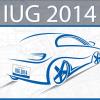Today we will be looking at the White House's fourth annual Science Fair, the push to create an education technology industry in Boston and Balitomore, the increasing demand for people who can work with big data analytics, a new Colorado library that provides a range of technologies for its community, and the shrinking number of summer jobs for teenagers in northeast Ohio.
Recent posts
For this Wednesday's Digest we will be highlighting a new set of regulations in California that will make it lega for autonomous vehicles to be drive, IBM's offer to some major universities to use the Watson supercomputer to aid in research, research showing the long term financial benefits of having a college degree, a new Australian supercomputer that will help in weather prediction, and reports showing central Ohio's strong economic growth.
The Digest for today takes a look at the impact that a college degree can have on lifetime earnings, a recent paper that STEM fields are not facing the shortages that many people claim, the impact that hands on demonstrations can have in sparking student interest in a topic, the role that community colleges are playing in preparing people for work in IT fields, and an 8th grade class's use of independent research time to allow students to pursue topics they are passionate about.
Editor’s note: OhioLINK is launching this column to showcase the extraordinary talent and leadership of the librarians and staff at OhioLINK’s member institutions. If you have suggestions for a library staff member who should be featured in this series, please email Meghan Frazer at mfrazer@ohiolink.edu.
A specialty niche among libraries, music librarianship enables people to combine passions for music, information and helping others.
Today we take a look at the impact that new start-up companies in northeast Ohio are having on the the economy, a proposal to increase the amount of grant money available to Ohio schools to improve security, the impact that big data and analytics are having on athletic performance, Cinncinnati's recent surge in employment, and a new grant that is allowing Pickerington schools to offer dual credit courses in manufacturing and pharmacy.
The Digest for this Thursday will examine the use of big data in helping to improve the diagnosis and treatment of cancer patients, a look at the future interactions between MOOCs and tuition based online courses, the impact that parents reading habits can have on their childrens desire to read, the various Common Core based tests that are emerging, and some minor changes to the Common Core and teacher evaluation systems made by the Ohio Senate.
The Digest for today will highlight the role that big data is likely to play in heldping disadvantaged students learn better, Havard's push to expand its use of MOOCs and online courses, Staples pilot project to bring 3D printing services to its stores, a look at the connection between student debt and administrative pay, and a professional skills MOOC app.
Tuesday's Digest takes a look at a group of students, parents, and teachers advocating for a change in the zero tolerance towards violence policies in Ohio, the impact that big data is having on hiring practices at major companies, a call for the Dept. of Ed. to update its rules for discharging student loans, an effort by Ohio to create a one stop website aimed at helping people pick a career, and the trends of school investment in technology.
Each library conference has a different feel, which is usually determined by the number of attendees. The bigger the conference, the broader the discussions and less detailed the presentations. Recently, two OhioLINK co-workers and I attended the Innovative Users Group (IUG) conference in Detroit, MI. Even with the size of 1000+ attendees, topics focused on workflows, processes, and system implications of proposed changes, and many presentations took a walkthrough approach.
The Digest for this Monday takes a look at the outlook for recent college graduates in a world with more uncertaintity than ever, a California program that is promoting the benefits of STEM education to young girls, the Ohio jobs report for April, a move by Missouri to begin the process of developing new academic standards to replace the Common Core, and the improtance of having accurate data when using big data in health care.
- ‹ previous
- 33 of 54
- next ›





